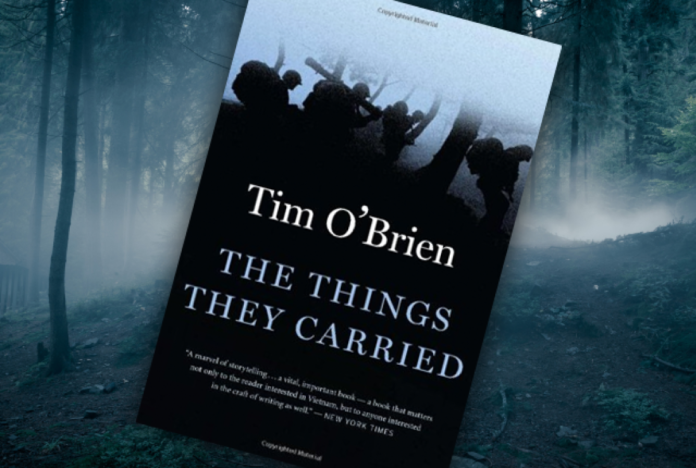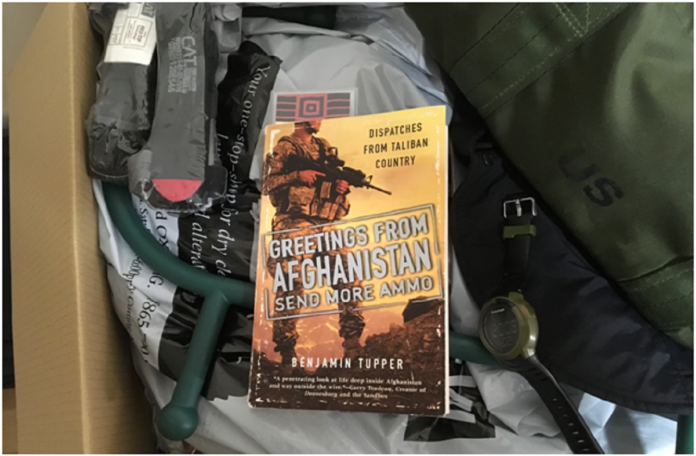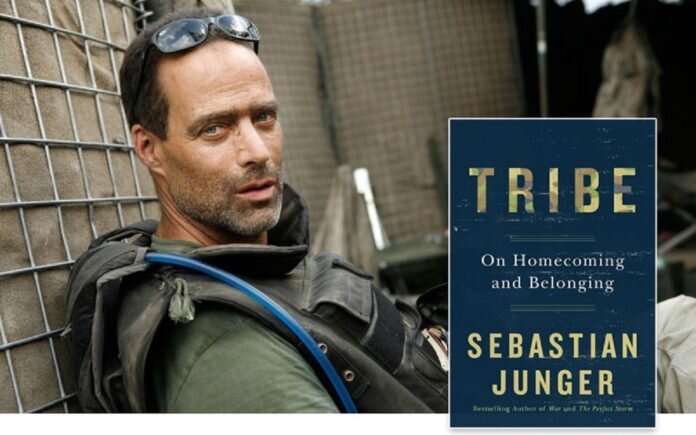
The Things They Carried
I have a complicated relationship with Tim O’Brien’s third book, The Things They Carried,When I left the service, I found myself first in an undergraduate program, followed by a graduate program to develop my writing, which mostly centers around, of course, my experiences in Iraq. Nearly every member of the so called “literati” that I subsequently engaged with did one of three things: recommend I read The Things They Carried, since it’s about war; be genuinely surprised I had not read it since it’s about war; or ignore my writing completely since they had already read The Things They Carried, which was about war so why read any others. True story.As a result, I took my frustrations out on the literati’s reaction to my writing on O’ Brien’s book, and resolutely refused to read it. Looking back, however, I was wrong for ignoring it out of spite. I knew I would have to read it at some point so I did…and so should you.I read The Things They Carried for the first time in 2014 on my way to California to see my son’s Young Marines ROTC graduation. Huge mistake. I cried. Not like sniffle, sniffle, someone is cutting onions, eye moisture crying. Full. On. Weeping. I laughed out loud, often for minutes after the crying. In airport terminals. On planes. In front of people. To be honest, I never felt the sense of being so understood as I had after reading this book.The catharsis was surprising. O’Brien said things that I thought I had experienced but had never been able to quite voice. And what’s more, he wasn’t an outsider speculating about the emotional rollercoaster of warfare like a well-researched journalist regurgitating jingoistic “truths” about war. He had lived it.Tim O’Brien was an infantryman in the Army’s 23rd Division. He published The Things They Carried in 1990, some twenty years after he patrolled through Vietnam, in the same AO where My Lai occurred. And you can tell from his prose. You can feel the tension of waiting for contact, the boredom of ‘hurry up and wait’, the longing for your comrades, and the quiet that comes from introspection and second-guessing your decisions years removed from conflict.Civilian readers and critics often talk about how this is a great collection of war stories, or a great book about war. There is only one problem: The Things They Carried isn’t a collection of war stories. Rather, it is a linked collection of short stories that follows a platoon of “legs” during a tour in Vietnam while exploring humanity and truth. That distinction may seem like semantics, but it’s crucial to explaining the book’s success. Sure, the war is there, but it is background, the contextual setting, not the heart of the narrative.Take for example, the opening story, “The Things They Carried.” For pages upon pages, O’Brien writes of the things the grunts carried. Then one of their guys gets killed. But he rolls right over the guy’s death. No details, no “ohshit” moment, he died, just ----- gets killed (I don’t want to spoil it for you so I omitted the name). And then to further underscore that the men are the story and not the war, he slips in a quick understated sentence: “Afterward they burned Than Ke. They marched until dusk, then dug their holes, and that night Kiowa kept explaining how you had to be there, how fast it was, how the poor guy just dropped like so much concrete. Boom-down, he said. Like cement.” Then the story continues listing the weapons and other gear the men carried. Of course, the death keeps coming up, in subtle ways, in pauses in the prose, quietly repetitious on the periphery of the action, like the death of one your guys tends to be. He captures how a guy’s death keeps coming up in the quiet moments…he effectively communicates the “I can’t believe that happenedness” of it all—effectively, yet subtly.One of the other things that his book is remarkable for is O’Brien’s use of verisimilitude. He blurs the line between O’Brien, the man, the soldier and then writer. Throughout the collection, you may find yourself asking what part of a story is true—because it all seems true or at least believable—and what part is made up, looking for the places where the lines cross and smudge.One of the best examples of this is the paired stories “Ambush” and “Good Form.” In “Ambush,”the portrayal of O’Brien’s fictional daughter asks if he ever killed anyone and he relates the story about a soldier he killed. Then a few stories later in “Good Form” O’Brien says he never killed a man, he only saw a man die. He gives us one story and then flips the script on the reader. He does this without being gimmicky or giving the sense he lied to the readers.For me, the most important story in the collection is “How to Tell a True War Story.” It starts with “This is true. I had a buddy in Vietnam.” Two short, clipped sentences that set the stage for a true war story. Only the war story—again—plays in the background to what he is actually trying to say. You have to listen to the subtle undertones while reading his prose. In fact, listening to what is actually being said is the whole point of the story if not the book. Another one of his soldiers is killed. O’Brien retells the event at least five times. Each time with a different perspective, different details, and with another soldier relating a fantastic story about music in the jungle—which the teller admits he embellished. At the end of the story, each reader has to think about what is true factually and what is true emotionally. Is there overlap? More importantly the story asks the reader to listen to what is being said, without being distracted by the violence of war and to stop looking for clear cut morals in true war stories.Be aware that Tim O’Brien was a draftee and did, in fact, want to flee to Canada to avoid the war. He even includes a short story about this experience in this collection—fictionalized of, course. His politics show through at times but whether you agree or disagree with these sentiments, the writing and storytelling outweigh the politics.The Things They Carried does not try to be a book about war (read that in a deep, serious voice). The Things They Carried is just a collection of stories about a bunch of guys who were in a war. It is fitting that The Things They Carried is told from a storyteller’s point of view. We are a story telling culture, us vets, and we know that in telling stories our dead are immortal.
Written By Beelz
10/23/18









